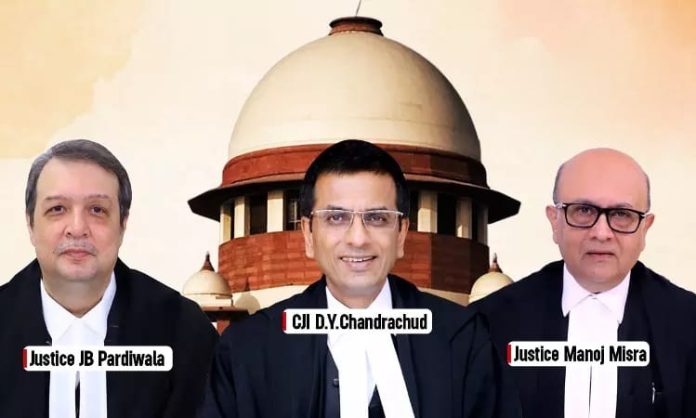May 5: In a significant ruling, the Supreme Court has underscored the pivotal role of trial judges in criminal proceedings, stating that they should not merely act as “tape recorders” but actively participate in eliciting relevant information from witnesses to ensure the truth is unveiled and justice is served.
The remarks came from a bench comprising Chief Justice of India DY Chandrachud, Justice JB Pardiwal, and Manoj Misra while deciding a criminal appeal in a murder case. The appellant stood accused of murdering his wife within their home, with their 5-year-old daughter being the sole eyewitness who later turned hostile.
Critically, the Court observed a lapse in the trial proceedings, noting that after the witness was declared hostile, the public prosecutor failed to adequately cross-examine her, neglecting to highlight contradictions in her testimony.
The bench criticized the trial judge for not taking a proactive stance, emphasizing that it is the duty of the court to actively monitor proceedings to ensure justice prevails. Specifically, the judge should exercise the powers conferred under Section 165 of the Evidence Act and Section 311 of the Cr.P.C. to elicit necessary materials, especially in cases where the prosecuting agency exhibits indifference or negligence.
Furthermore, the judgment highlighted the judge’s authority to pose questions to witnesses during examination, cross-examination, or re-examination to rectify errors or slips made under the stress of nervousness.
In conclusion, the Supreme Court’s ruling reinforces the crucial role of trial judges in upholding the integrity of criminal trials and ensuring that the pursuit of truth is not compromised.




